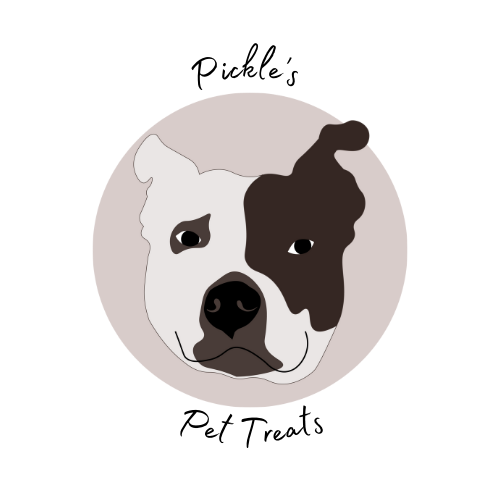 As a veterinary nurse, I’ve seen firsthand how anxiety can affect our pets. Just like humans, dogs and cats can experience anxiety, which can impact their quality of life. Understanding the signs, causes, and management strategies for anxiety in pets is crucial for their wellbeing.
As a veterinary nurse, I’ve seen firsthand how anxiety can affect our pets. Just like humans, dogs and cats can experience anxiety, which can impact their quality of life. Understanding the signs, causes, and management strategies for anxiety in pets is crucial for their wellbeing.
What is Anxiety?
Anxiety is a state of distress or unease that can occur in response to certain situations, environments, or stimuli. It’s a common issue in both dogs and cats, and can manifest in a variety of ways, including changes in behaviour, excessive vocalisation, and even health problems.
Signs of Anxiety
In dogs, signs of anxiety may include:
- Excessive barking or howling
- Pacing or restlessness
- Destructive behaviour
- Changes in appetite
- Excessive grooming or licking
In cats, anxiety can manifest as:
- Excessive grooming or scratching
- Changes in eating habits
- Hiding or avoidance behaviour
- Aggression towards people or other animals
- Changes in litter box usage

Anxiety in pets can lead to a variety of health problems. Here are some of the most common health issues associated with anxiety in dogs and cats:
- Behavioural Issues: Anxiety can lead to destructive behaviour, distress vocalisation, house-soiling, restlessness, inability to settle, and repetitive or compulsive behaviours.
- Physical Symptoms: Anxiety can cause physical symptoms such as excessive salivation, panting, and changes in appetite. Some dogs may shed more than usual when nervous.
- Gastrointestinal Problems: Anxiety can lead to gastrointestinal issues such as diarrhoea. Changes in appetite or water intake can also be a sign of anxiety.
- Skin Problems: Anxiety can lead to skin problems. For example, excessive grooming or scratching can lead to hair pulling, resulting in bald spots. Lick granulomas, sores caused by excessive licking, can also occur.
- Weakened Immune System: Chronic anxiety can lead to a weakened immune system due to the excess of stress hormones.
- Aggression: One of the most dangerous symptoms of dog anxiety is aggression. This aggression can be targeted directly or indirectly, depending on the situation.
It’s important to note that these health problems can be serious and should not be ignored. If you notice any of these symptoms in your pet, it’s recommended to consult with a veterinarian for a proper diagnosis and treatment plan.
Causes of Anxiety
Anxiety in pets can be triggered by a variety of factors. These may include changes in their environment, such as moving to a new home, the addition of a new pet or family member, or a traumatic event. Other triggers can include loud noises, separation from their owners, or a history of neglect or abuse.
Managing Anxiety
As pet owners, there are several strategies we can use to help manage our pets’ anxiety:
- Behavioural Training: This involves working with a professional dog trainer or behaviourist to help your pet learn to cope with their triggers.
- Environmental Changes: Creating a safe, comfortable space for your pet can help reduce their anxiety. This might include providing a quiet, secluded area for them to retreat to when they’re feeling anxious.
- Medication: In some cases, medication may be necessary to help manage your pet’s anxiety. Always consult with a veterinarian before starting any new medication.
- Regular Exercise: Regular physical activity can help reduce anxiety by burning off excess energy and promoting a sense of calm.
- Pheromone Products: These products release calming pheromones that can help reduce anxiety in pets.
 Supplements for Anxiety: Zylkene and Tryptophan
Supplements for Anxiety: Zylkene and Tryptophan
Zylkene is a natural calming aid that can be administered to pets to reduce stress and relieve anxiety. It’s derived from a type of casein protein found in mammal’s milk, which has anti-anxiety properties. Zylkene can be used for both short-term and long-term use, depending on your pet’s anxiety triggers. It’s safe for dogs and cats, and has minimal side effects. It’s important to note that Zylkene is not a sedative or painkiller.
Tryptophan is an essential amino acid that aids in the production of the neurotransmitter serotonin, which plays a key role in maintaining mood balance. Tryptophan supplements can help increase serotonin levels in the brain, which can help reduce symptoms of anxiety.
The Gut-Brain Axis and Anxiety
Recent research has indicated a profound connection between the gut microbiome and mental health, including anxiety. This link is often referred to as the “gut-brain axis”. Changes in the gut microbiome can influence the brain’s physiology, affecting an animal’s behaviour and emotional state.
Probiotics and a Healthy Gut Biome
Probiotics are beneficial bacteria that can help maintain a healthy gut biome. A healthy, diverse gut microbiome can generate a steady supply of short-chain fatty acids (SCFAs) and tryptophan catabolites (TRYCATS) to bolster the integrity of the gut and its operations. These compounds are important signalling molecules in the nervous system and brain.
There is evidence suggesting that a healthy gut biome may affect the ‘gut-brain axis’. If this is the case, then it is possible that certain probiotics may help calm dogs. For instance, a study found that supplementation with a particular probiotic, Bifidobacterium longum (BL999), resulted in a reduction in anxiety behaviours in dogs.
Remember, every pet is unique, and what works for one may not work for another. It’s important to work closely with your vet to develop a personalised plan for managing your pet’s anxiety.
As a veterinary nurse, I believe that understanding and addressing pet anxiety is an essential part of providing the best possible care for our furry friends. With patience, understanding, and the right strategies, we can help our pets lead happier, healthier lives.
Managing anxiety in pets involves a holistic approach that includes behavioural training, environmental changes, and nutritional interventions such as the use of supplements like Zylkene and Tryptophan, and maintaining a healthy gut biome with the help of probiotics. Always consult with a veterinarian before starting any new treatment or supplement for your pet.
Sources:
Pickle’s Pets 2024
Written by Brittany Overton, Vet Nurse


